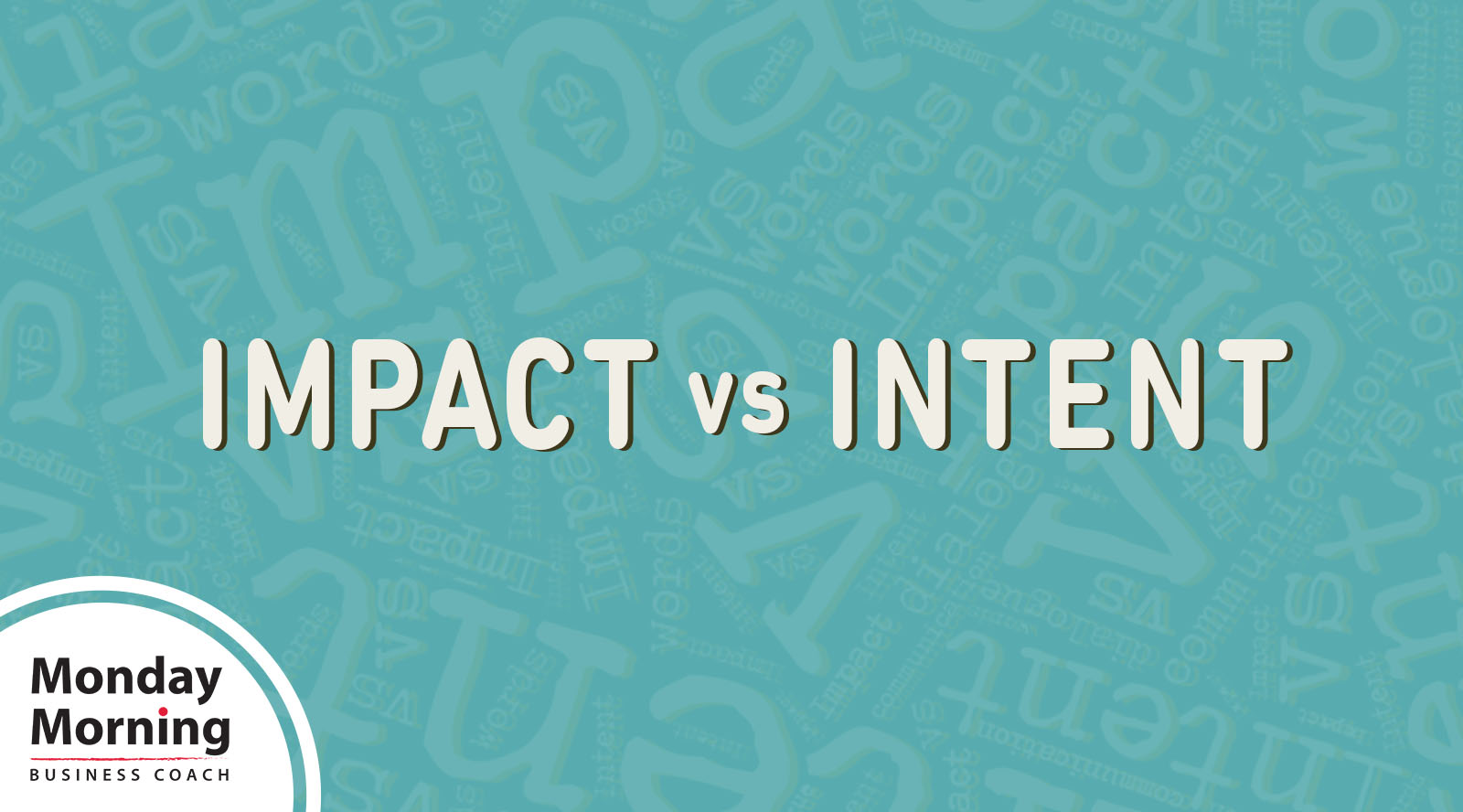As our nation starts to look at systemic racism, we’re being asked as individuals and organizations to consider our behaviors through a new lens. As we do so, we’re hearing a lot of people saying, “That wasn’t my intent.”
Of course, this response isn’t new. It’s quite common in the organizations we work with when they’re struggling with communication challenges, examining relationships that have broken down, and with those teams who are struggling to build trust.
We also see this happening with loved ones. How many of us have said something similar to a family member after a difficult interaction?
While it may be true,
“That wasn’t my intent,” limits dialogue.
When we say, “That wasn’t my intent,” we’re not offering an apology nor an expression of understanding of the other person’s experience. When we say, “That wasn’t my intent,” we’re saying our intention is more important than their experience. We’re in essence saying that their experience isn’t valid.
We’ve all had moments when something we’ve said was received differently than it was intended. This is actually quite common as we’re rushing through our days, meeting over Zoom or by phone, or communicating through emails. That doesn’t make you a bad person or an unskilled leader. But, if you want to keep communication lines open and be experienced as a skilled leader, you need to listen to the experience of those you’re communicating with and own the impact of your words.
So, instead of stopping at “That wasn’t my intent,” own your impact and get curious.
Something like, “That wasn’t my intent and I can see/hear that the impact of my statement was very different than my intent. Can you share your experience with me?”
Then listen. Really listen. Don’t defend.
Thank them for sharing their experience.
Remember this interaction
as you go forward in the relationship.
As we’ve mentioned before in our Monday Morning Posts, there are multiple truths in every interaction, and in order to lead most effectively, you have to open yourself to their reality – even when it’s hard.
When you embrace that your words may not have had the impact you intended, and then you own it and work with it, you’ll be much more effective and more deeply connected.
Staying open to learning how you impact others
is the only way to truly understand them.
Let us know how it goes.


